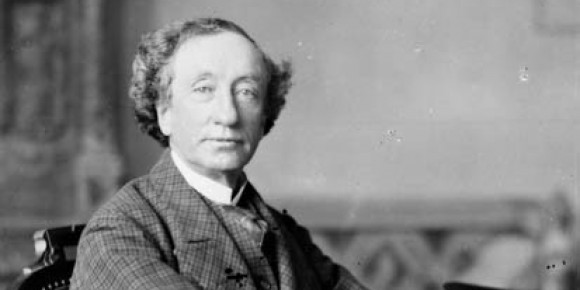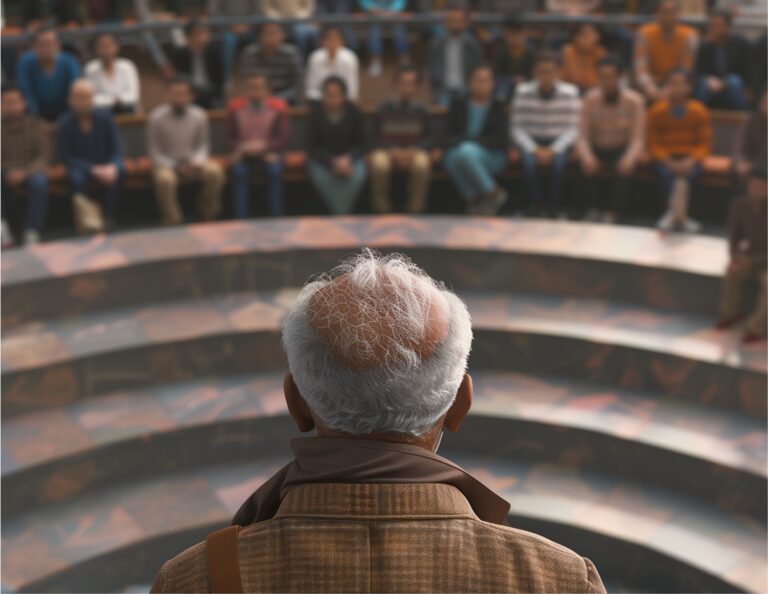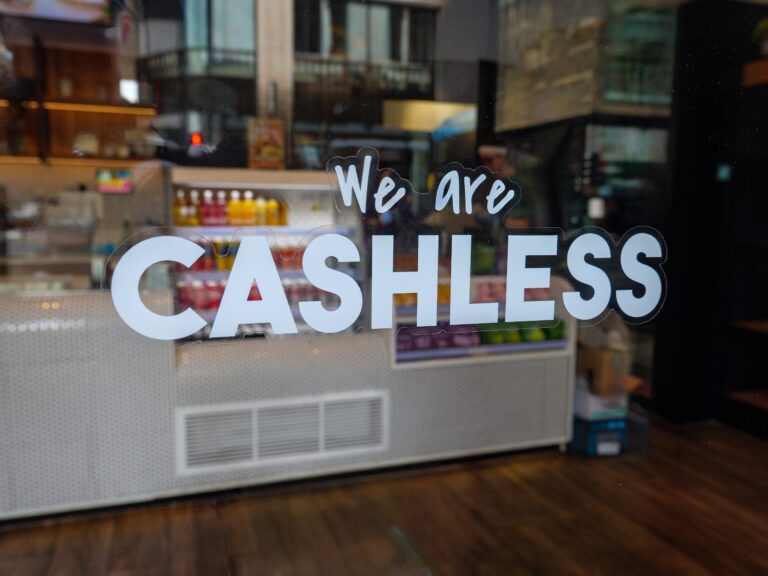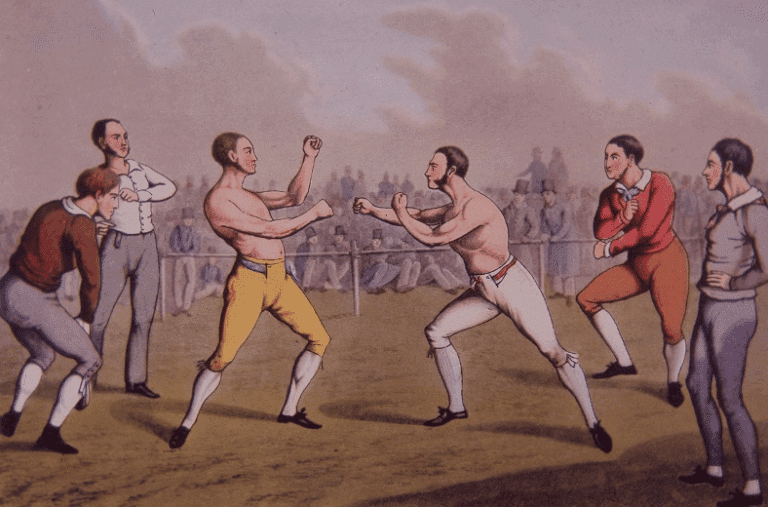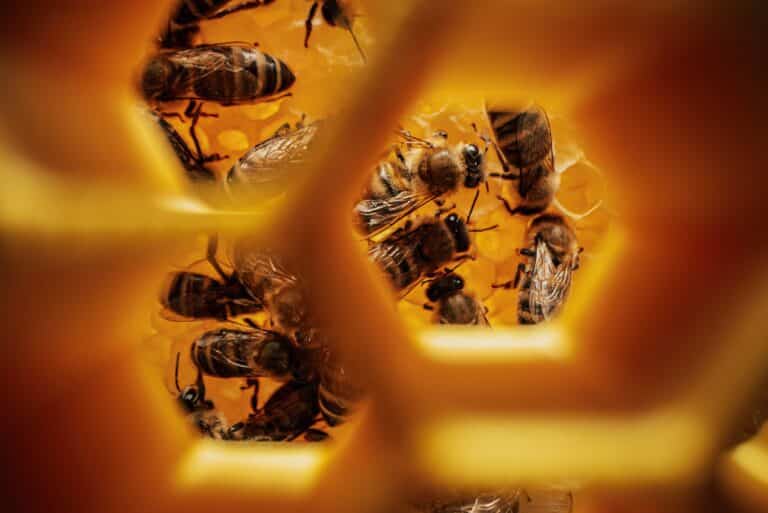A bold suffragette once cornered Prime Minister Sir John A Macdonald and demanded to know why as a man, he could vote in Canadian elections while she, as a woman, could not. After a quick stage pause, Macdonald replied: “Madame, I cannot conceive.”
While attending the funeral of a senator, Macdonald again found himself cornered, this time by a determined patronage seeker. “Sir John, I would like to take that man’s place,” said the insistent supplicant of the late senator. To which Macdonald shot back: “I’m afraid it’s too late. The coffin is nailed shut.”
Around the table at a fashionable dinner party, talk fell to the vast wealth of Sir Hugh Allan, Montreal railway financier and central figure in the Pacific Scandal which caused Macdonald so much political grief. Someone commented playfully that as rich as Allan was, he couldn’t take his money with him when he died. “No,” Macdonald quipped, “it would soon melt if he did.”
In 1886, Macdonald took his first and only cross-country trip on the CPR. Along for the ride was a Catholic bishop from Belgium on a tour of Belgian immigrant communities in Manitoba. At one whistle stop the bishop was surprised to see the local Scottish population turn out in full Highland regalia to welcome Macdonald. Having never seen a man in a kilt before, he asked his travelling companion for an explanation. Macdonald assured him this was simply a sign of respect. In some places men take off their hats to honour a distinguished visitor, a straight-faced prime minister informed the bishop. In this town, he explained, men take off their trousers.
He’s got a million of ’em.
“Macdonald was a genuinely funny prime minister,” says biographer Richard Gwyn. “He was so quick witted he could come up with a clever line for just about anything. And he used that ability to absolutely charm everyone.”
In fact there has never been a funnier prime minister than Sir John A. Macdonald. Beyond his rich legacy of monumental political accomplishments such as Confederation, the CPR, the Mounties and opening the West, Macdonald also endowed Canada with a seemingly inexhaustible supply of witticisms, jokes, humourous observations, put-downs and pranks. Beyond being Canada’s first and greatest prime minister, Sir John was also this country’s founding wit. No joke about it.
Many of Macdonald’s snappiest one-liners, such as his rejoinders to the suffragette and senatorial hopeful described above, were the result of the day-to-day business of 19th century politics. Macdonald oversaw a vast apparatus of federal patronage appointments and was constantly besieged by supplicants eager to have their loyalty rewarded. In addition there were innumerable voters eager to have their pet causes promoted. It was impossible to say yes to everyone. “He often used humour was a way of saying no, but without being nasty or hurtful about it,” observes Gwyn.
When discussing the vacant position of Lieutenant Governor of Nova Scotia with Conservative Senator Robert Dickey, Macdonald asked if Dickey was still loyal to the party despite having opposed Confederation. “I am still a Conservative and I shall support you whenever I think you are right,” Dickey told his leader. With a twinkle in his eye, Macdonald harrumphed: “That is no satisfaction. Anybody may support me when I am right. What I want is a man who will support me when I am wrong!” (Dickey never got the job.)
With his lightning-fast verbal reflexes, Macdonald was always a step or two ahead of his political opponents. Yet amid the thrust-and-parry of the House of Commons, Macdonald never sought to humiliate his adversaries. “He always tried to get his opponents to laugh at themselves, which would lead to no harm or bitterness in the end,” says Gwyn. During a raucous debate over a planned pay raise for a Conservative appointment to the Chancery court, Liberal MP James McMullen blustered that members of his party were no longer willing “to hold our tongues” on such matters of patronage. To this outburst, Macdonald calmly replied, “Well, if I am on a jury when my hon. friend is tried for holding his tongue, I will say − ‘not guilty.'”
“Macdonald stands on a podium, head and shoulders above everyone else in Canadian politics when it comes to his use of humour,” says Patrice Dutil, co-editor of a recent collection of essays on Macdonald and a political scientist at Ryerson University in Toronto. “He was a very witty man who had the ability to see the funny side of all situations.”
Once Macdonald and his solicitor general Hector Langevin attended an address at McGill University by Governor General Lord Dufferin, which he delivered entirely in Greek. The following day, a newspaper reported that Dufferin had spoken “the purest ancient Greek without mispronouncing a word or making the slightest grammatical solecism.”
Langevin: “How would the reporter know that?”
Macdonald: “I told him.”
Langevin: “But you don’t know any Greek!”
Macdonald: “That’s true, but I do know a little about politics.”
And while he took the business of politics and governing quite seriously, his most trenchant observations about political life were often rooted in wit. “Given a government with a big surplus, a big majority and a weak opposition,” he once observed. “You could debauch a committee of angels.”
Macdonald’s sense of humour also gave him a tremendous advantage when stumping for votes. “Before radio, television or the Internet, public speeches were a collective pastime,” notes Arthur Milnes, an historian and speech-writer who co-edited a recent collection of Macdonald’s greatest speeches and serves as the City of Kingston’s Sir John A. Macdonald Bicentennial Ambassador. “The people wanted to be entertained. While most of his competitors of the day were dry and dour, everyone knew that when they attended a speech of Macdonald’s he would make them laugh,” says Milnes. “He could also have great fun with his own image, and that endeared him to the public.”
Toronto Star
His quick wit rescued him from many situations that would have doomed lesser minds, particularly when a bottle was involved. Perhaps the most famous example concerns the time Macdonald overindulged during the train ride to a campaign debate in Northern Ontario, and then ungraciously threw up on stage while his opponent was making his opening remarks.
“Such a sight before a large audience disgusted even many of his friends, and the prospect for the Conservative cause that day was not bright,” noted a contemporary account of the incident. His opponent, who’s name has been lost to history, stopped speaking mid-sentence. Everyone stared at Macdonald. Collecting himself, he turned to address the crowd. “Mr. Chairman and gentlemen,” he began in a seemingly contrite tone. “I don’t know how it is, but every time I hear Mr. J— speak, it turns my stomach.” According to the reporter on the scene, “the audience went off in fits of laughter, and disgust was instantly turned into general good humour and sympathy.”
“Ninety-nine point nine percent of politicians in the world would have been destroyed by such a thing,” says an admiring Gwyn. “Vomiting in front of the public is surely one of the rudest things anyone could ever do. And yet he found a way to turn the situation to his benefit. People have a space in their hearts for a lovable rogue, and Macdonald was able to benefit greatly from that.”
Where most politicians are inclined to hide or at least downplay their shortcomings, Macdonald celebrated his own. Confronted by members of his own caucus about his drinking, and that of his friend, colleague and enabler Thomas D’Arcy McGee, Macdonald said to his fellow father of Confederation: “Look here, McGee, this Government can’t afford two drunkards – and you’ve got to stop.” Another time he won over his audience by declaring that Canadians “would rather have John A. drunk than George Brown sober.” It was not only a funny line, but had the added advantage of being entirely true as well.
Beyond his well-known weakness for liquor, Macdonald also earned himself the nickname ‘Old Tomorrow’ for his tendency to defer or delay difficult decisions. Yet no one took greater pleasure in the name than Macdonald himself; he always enjoyed a good joke, even when he was the punch line. When a rumour circulated that he was about to be offered a British peerage, Macdonald quipped, “I will be Lord Tomorrow.”
Macdonald also delighted in word play and banter. Among the hundreds of little jokes and puns he left sprinkled throughout several decades of Hansard, here’s one exchange between Prime Minister Sir Alexander Mackenzie and then-opposition leader Macdonald that shines with gleeful mischief: (At issue was the fact Sitting Bull and his Sioux warriors had just entered Canada after defeating Custer at Little Big Horn.)
Mackenzie: It is not the intention to make any representation on this subject
Macdonald: I do not see how a Sitting Bull can cross the frontier.
Mackenzie: Not unless he rises.
Macdonald: Then he is not a Sitting Bull.
Even in his private moments, Macdonald’s took great pleasure in a clever turn of phrase. He often, for example, signed guest books as “John A. Macdonald, cabinet-maker.”
And while prime ministers are generally too busy to dream up and execute practical jokes, the 1891 book Anecdotal Life of Sir John Macdonald by journalist E.B. Biggar (which serves as the wellspring for Macdonald’s quips and anecdotes), makes note of at least one prank pulled by Macdonald during his early political career in the pre-Confederation era.
Col. Andrew Playfair, a veteran of the War of 1812 currently employed by the government as a local mail carrier, was lobbying Macdonald for an appointment as superintendant of a road north of his home near Perth, in what is now eastern Ontario. After numerous letters pleading his case, Playfair decided to trek to Macdonald’s office in person.
After keeping him waiting all day, Macdonald finally emerged from a meeting and breathlessly exclaimed, “God bless my soul, Col. Playfair, is that you? I’m so glad to see you. We have just been discussing in council a military matter that we cannot decide. Now you, with your great military experience…will be able to solve the question.” The sucker rose to the bait, so Macdonald laid it on him. “The question is: How many pounds of gun powder put under a bull’s tail would blow his horns off?” As the old colonel pondered this puzzler, Macdonald slipped away. Playfair probably cursed his tormentor all the way home – until he discovered that the official announcement awarding him the long-sought position of road superintendant had been slipped into his mail pouch by a certain political jokester.
Macdonald’s exuberant sense of humour was never an act or a stunt. Rather it was the embodiment of his outsized intellect, his irrepressibly sunny disposition and the enjoyment he found in the company of others. “Humour was absolutely essential to Macdonald’s approach to governing, to his political affairs and his personal life,” says Ryerson’s Dutil.” That zest for living and ability to see the happier side of life is all the more remarkable when you consider no other prime minister went through more personal hardship or misery than Macdonald.” The lengthy illness and death of his first wife, the loss of his first-born baby son, a severely handicapped daughter, a crippling habit of binge drinking, the opprobrium of the Pacific Scandal, repeated financial difficulties – not only did Macdonald bear all these burdens, bounce back and succeed, but along the way he got a laugh out of nearly everyone he met.
There seems no risk Macdonald will ever cede his crown as Canada’s funniest prime minister. Today even the slightest jest is bound to evoke paroxysms of outrage from at least one hair-trigger interest group, which are then amplified without context or mercy across the vast vindictive landscape of social media. Thus politicians have been cowed into abandoning any comic talents they might possess or, at best, relegated to playing straight man for talk show hosts and professional comedians. If war is too important to be left to the generals, humour is now too risky to be left to the politicians.
Yet even in our era of stultifying politically correctness, Macdonald’s boisterous and unstoppable sense of humour would surely find its way to the surface. “He’d be a natural for Twitter,” offers Dutil. “Macdonald’s wit and bon mots would still be razor sharp in 140 characters today as they were back then. I’m convinced he’d have a huge following if he were still around.”
~
Peter Shawn Taylor is editor-at-large of Maclean’s magazine. He lives in Waterloo, Ont.
